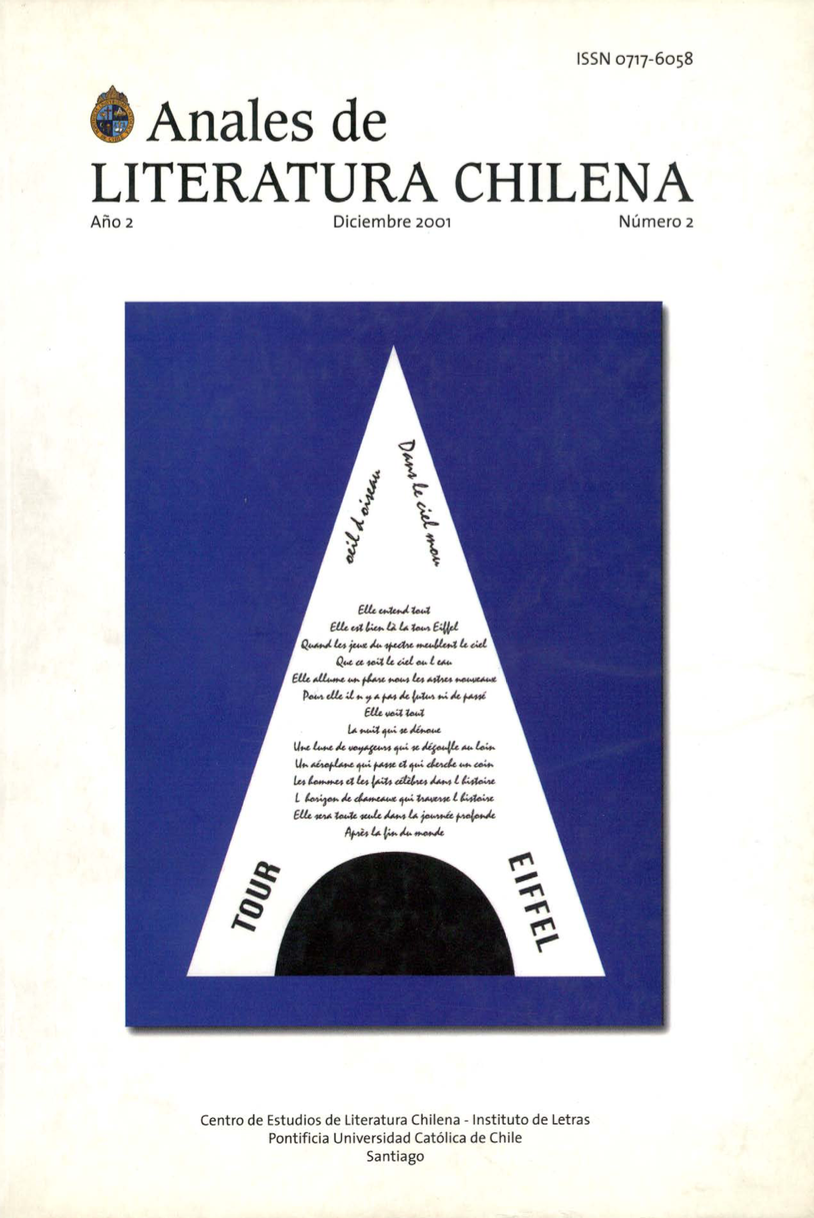Violence and erotism in "Aguas abajo" of Marta Brunet
Abstract
This article explores the meanings of the erotic conjoined with the violent in Marta Brunet's short story "Aguas abajo". In this text, the "love triangle" made up by the figure of "the mother," "the young girl" and "the man" represents more than what the trivial or classical conflict would lead us to expect. The story portrays an underlying yet central rivalry between the mother and the daughter which excludes the masculine element from the interplay of significant adult roles. Within the family dynamics, female sexuality is a way of obtaining power, while male sexuality is assumed as a "natural drive" of which the man is not responsible. In this story, the endogamic and claustrophobic relationships within the Chilean "fundo" (country estate) express a broader social situation which can overcome the limitations placed upon human relationships only through an interpersonal dialogue that incorporates regional elements in the self-expression of the characters.
Downloads
Published
How to Cite
Issue
Section
License

This work is licensed under a Creative Commons Attribution-NoDerivatives 4.0 International License.


